Diet Plan for Weight Loss Female Over 50
This post may contain affiliate links, so if you buy from a link we may earn a commission at no cost to you
Heya!
So you want to know whether it's possible to lose weight on a vegetarian diet? Heck yeah it is! That's good news already, isn't it? And even better, you've come to the right place. This guide sets you up for the free 7-Day Vegetarian Weight Loss Meal Plan including a grocery list.
First we'd like to show you the benefits of a vegetarian diet for losing weight. There are many and that should get you excited to try it out already!
Next, we go over the weight loss basics. These are essential and stay the same, no matter what diet you're on.
After that we dive a bit deeper on how to get all the nutrients you need on a vegetarian diet. Important, because we don't want you to worry over enough protein 😉
Then we put everything into practice with our meal plan including ONLY quick and easy recipes.
Ready? Let's dive right in!
Benefits of the vegetarian diet for weight loss
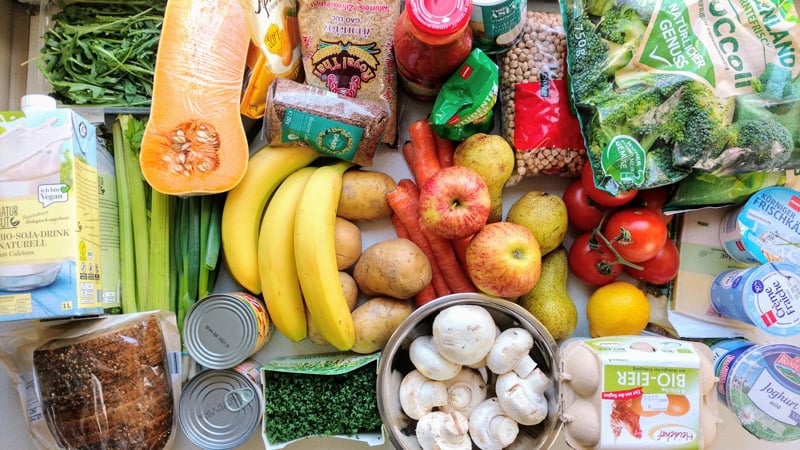
Vegetarian diets can be twice as effective for weight loss as carnivorous diets. This is what researchers from the Physicians Committee for Responsible Medicine in Washington DC found in this study.
There is another study with co-authors from the Harvard School of Public Health indicating that vegetarian diets seem to have significant benefits on weight loss compared to non-vegetarian diets.
And these researchers from the Loma Linda University in California found in a group of more than 60.000 people that vegetarians had less body fat than non-vegetarians. This indicates in their eyes that vegetarianism has substantial potential to protect against obesity.
That is really awesome news! But you know how it is with studies. One says this, another says that.
Here is why the vegetarians in this study were so successful:
On a healthy vegetarian diet you emphasize more on fruits, vegetables, whole grains and plant-based proteins. At the same time you avoid many high calorie food groups, most importantly processed foods like canned soups or frozen pizzas. By the way, this is also what the researchers in the studies above think.
The Weight Loss Basics
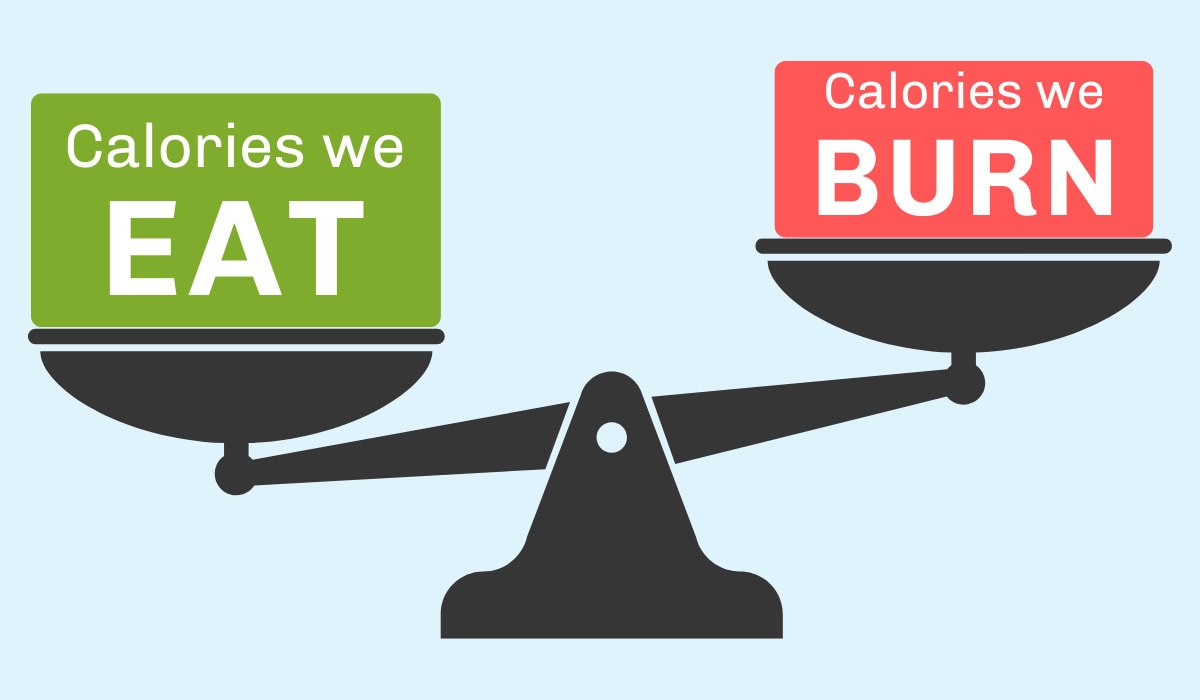
Did you know? As a rule of thumb, weight loss is about 75% diet and 25% exercise (see here). So just by eating right, we can do loads already!
To lose weight you need to take in less calories than your body requires for maintaining its weight – no matter whether these calories consist of protein, carbs or fat.
As simple as that. In reverse: if you eat more calories than your body requires, you gain weight.
In our meal plan you'll also find a sheet to easily calculate your necessary calorie intake – if you want to focus on calorie counting. But you don't have to with this meal plan. Here is why:
Now, what is the easiest way to turn around your calorie balance from gaining weight to losing weight?
Answer: Less highly processed foods, more whole foods. That's it. We promise you, any serious weight loss diet is based on that fundamental rule.
By highly processed food we mean multi-ingredient industrial mixtures that are no longer one thing – fish fingers, sweets, cola (see here).

By whole foods we mean food that is not or just a little processed and refined before being consumed, eg. whole grains, beans, fruits, vegetables, fresh milk, eggs (check here).

What's the problem with highly processed food? Most of them contain a lot of sugar, unhealthy fats and artificial ingredients. And on top of that they are low in nutrients (see here). On the other hand whole foods are exactly the opposite.
As a rule of thumb just by replacing most highly processed food with whole foods you'll automatically move into a caloric deficit. On top of that, we made sure that the daily caloric goal on the plan is roughly 1500 kcal for women and 1800 kcal for men, which means a deficit of around 500 kcal/day for most people.
Nutrition Basics on a Vegetarian Diet

I'm sure many of you don't only want to know about the weight loss side of things when it comes to a vegetarian diet. Getting all the nutrients you need is at least as important as losing some pounds.
First off, if you are eating a variety of foods in appropriate quantities, it's unlikely that you are missing out on any key nutrients as a result of going vegetarian.
Actually, being on a vegetarian diet can have many health benefits if you avoid processed foods and stick to whole foods as mentioned earlier. Compared to the "standard western" diet including meat, vegetarians as a population have a lower rate of the common conditions list below (see here, and here):
- Obesity (you've guessed)
- Heart disease
- Lower rates of hypertension
- Lower LDL cholesterol
- High blood pressure
- Type II diabetes
- Overall lower rates of cancer
That said, there are some important points to mention in relation to:
- Protein
- Omega 3 fats
- Iron
- Vitamin B12
Protein
In the image below you see some of the top vegetarian protein sources.
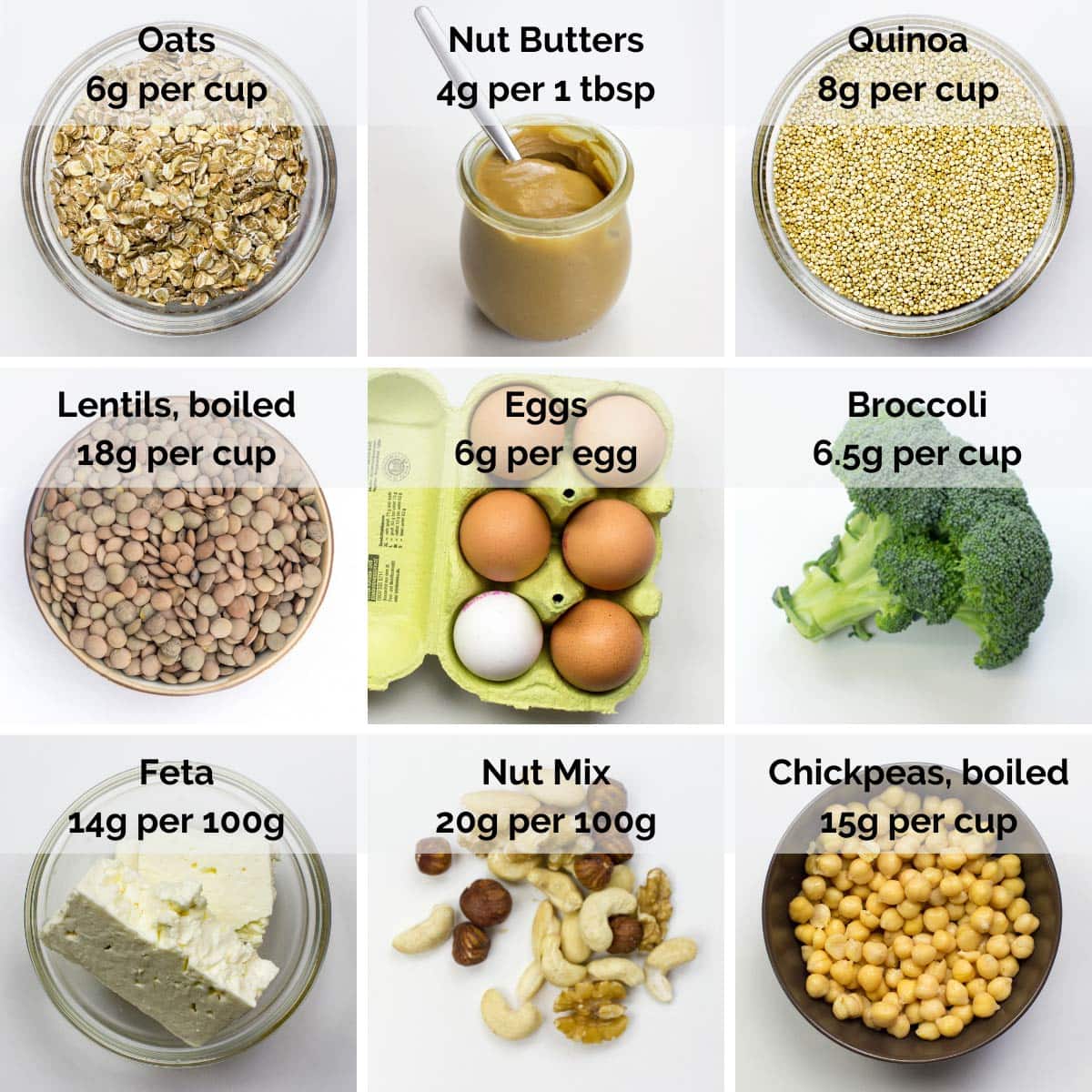
Against popular belief, meeting protein requirements shouldn't present any issues at all. A balanced vegetarian diet can provide all the protein you need. Include a wide variety of protein containing foods into your diet and you'll be absolutely fine:
- Nuts, peas, beans (including peanuts)
- Dairy products (cheese has similar protein to meat/fish by weight)
- Eggs (considered a complete protein)
- Tofu and meat substitutes
- Rice, grains, pasta, quinoa and breads
Omega 3
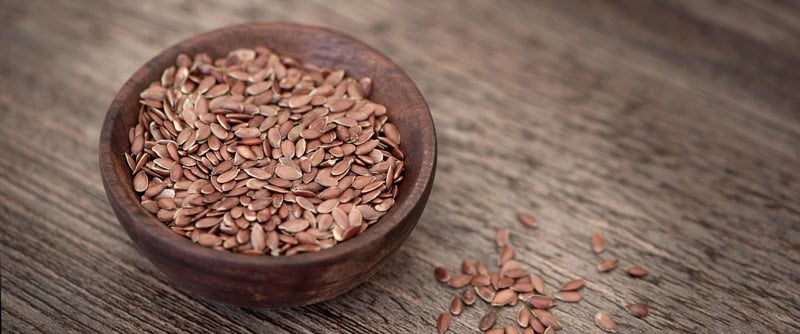
In general the typical Western diet is too high in Omega 6 relative to Omega 3. This means even though you were not eating vegetarian it would be recommendable to keep an eye on your Omega ratio (see here, and here).
Omega 3 fats have important anti-inflammatory and anti-thrombotic effects (reducing the risk of blood clotting). Their anti-inflammatory processes may be particularly important if you have an inflammatory condition such as arthritis or eczema. Also they appear to be important for our brain to perform well.
For you, it means to include foods with a good Omega 3 to Omega 6 ratio in your diet to get the balance right.
Eat more
- flax seeds,
- chia seeds
- flaxseed oil
And avoid vegetable oils high in omega 6 like sunflower oil. Here's also a list of foods high in omega 3 and omega 6 for you to get an overview.
Vitamin B12

Important functions of vitamin B12 are the formation of red blood cells as well as maintaining a healthy brain and nervous system.
Most animal foods contain vitamin B12, especially fish. Vegetarians (as opposed to vegans) can get their B12 intake from dairy products and eggs.
Also, many foods are fortified with B12. Examples of these include breakfast cereals, yeast extracts, soy, almond and rice milks. But definitely check labels to be sure.
Good sources of vitamin B12 in a vegetarian diet include:
- Eggs
- Dairy products – cheese and milk are natural sources
- Yeast extract – a fortified source
- Fortified cereals, soy milk, and soy yogurt
Iron

Iron is needed to carry oxygen to all the body's cells. It is also involved in the cellular production of energy, which is why one of the first signs of low iron deficiency is feeling tired and fatigued (see here). For the meal plan it means we need to add enough nutrition dense foods in order to get the amount of iron we need.
Good sources of iron in a vegetarian diet include:
- Chickpeas, lentils, kidney beans and other pulses
- Tofu
- Sprouted beans and seeds
- Breakfast cereals and bread
- Green leafy vegetables like kale and cabbage, and also broccoli
- Nuts, such as almonds and cashews
- Dried apricots, dates and raisins
- Date syrup and molasses
Starting the Vegetarian Weight Loss Journey
Part 1: Out with the old
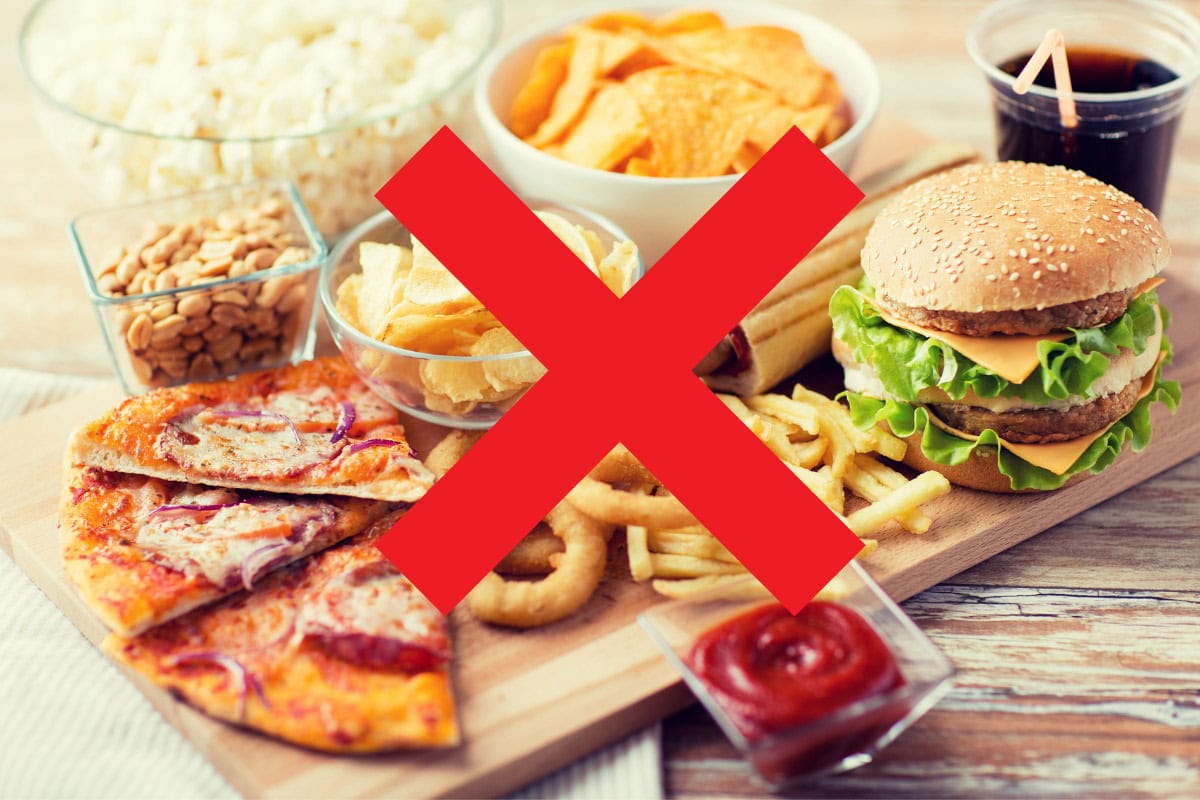
We're no fans of throwing food in the bin. But it's important that you don't stock up on certain things. As you surely know, we all have our weaknesses for certain naughty foods, and if they are in the house we are much more likely to give in to temptation. That would be a shame for our weight loss efforts.
Follow these tips and you'll be sure you automatically eat more whole foods and reduce calorie intake a lot.
Fats
Use less highly processed fats like margarine and cheap oils like canola or sunflower oils
Meat
Stop purchasing meats of all kind, especially the highly processed ones like sausages and sandwich slices.
Snacks
Avoid stocking up on sugary snacks like donuts, milk chocolate, cookies and sweets. Also skip the salted chips and salted nuts.
Dressings and Sauces
Walk past heavy caloric products like mayonnaise, ketchup, french dressings and alike.
Drinks
Store bought sodas and iced teas usually are high in calories. Juices are naturally high in calories too. Cut down on these products.
Also important: read nutrition labels!
You'll be surprised how many calories you find in a single bottle of soda or in a cup of seemingly healthy fruit yogurts. Make sure to always check the serving sizes as well. Many companies are sneaky and recommend super small serving sizes in order to bring the calorie count down.
Don't let them fool you! You'll get good at reading labels quickly.
As an example check out these Haribo Goldbears (not vegetarian, actually). To figure out how many calories are in this pack you have to do quite some math: 4.5 times 100 = 450 kcal. Now to be able to compare this to other snacks it would be better to know the calories per 100g: 450 kcal / 142g * 100 = 316 kcal per 100g. All in all quite naughty to say the least.
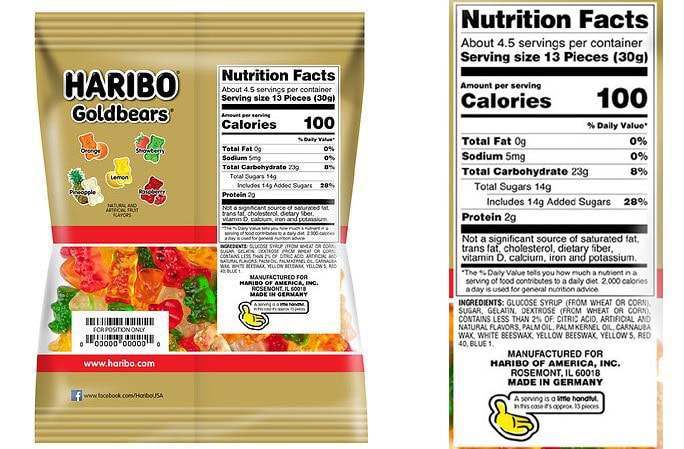
Part 2: In with the new
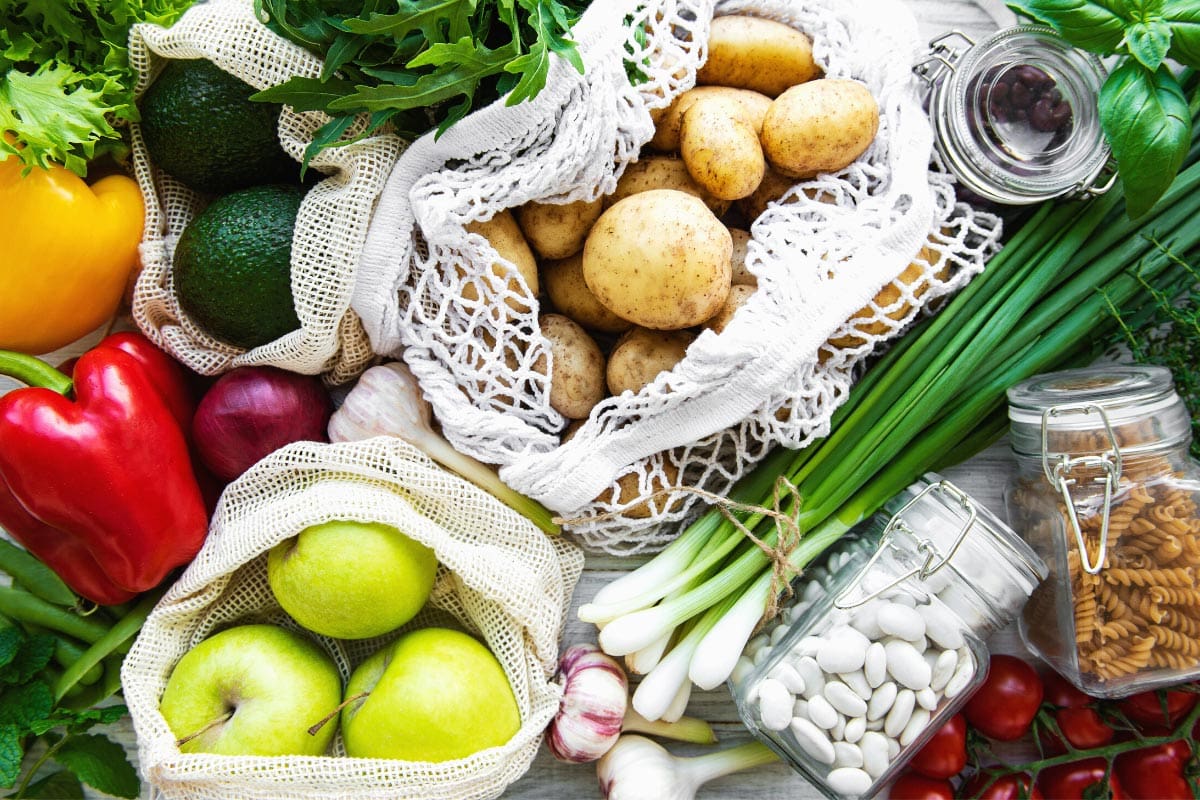
Now you might feel slightly disappointed to see so many of your favourite groceries banned from your kitchen. Well, the good news is that the vegetarian diet is not about abstaining, but about changing food staples.
Let's go:
Fats
Use more of the less refined fats like butter, olive oil and coconut oil.
Meat replacements?!
Going vegetarian doesn't mean to just leave out meat or replace meat with a meat substitute. It's more about discovering new recipes. If you are worried about protein and B12, then foods like chickpeas, beans, lentils, tofu, eggs, halloumi cheese, feta and mozzarella are excellent sources.
Snacks
Stock up on dried fruits, nuts, seeds, homemade popcorn and dark chocolate.
Dressings and Sauces
Make your own dressings or at least get some low calorie store bought dressings and use them in moderation.
To Drink
Go for various teas, water and coffee.
Our vegetarian weight loss meal plan has all this incorporated, so you can easily follow along, stress-free.
Part 3: The Weight Loss Meal Plan
Alrighty, on to the veggie meal plan! It's only moderate in carbs and higher in healthy fats/proteins making it easier to lose weight. Many of the carbs are fibre, also beneficial for weight loss and maintenance.
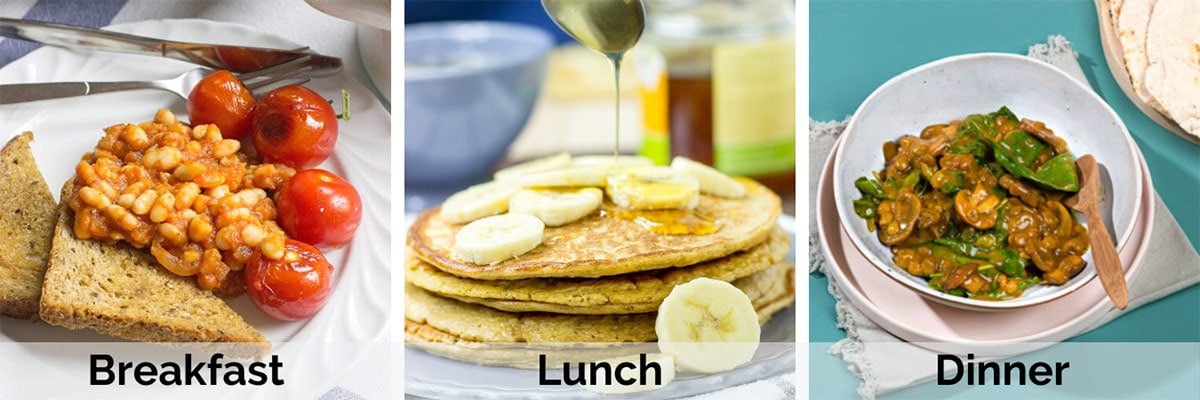
Day 1
Day 1 kicks off easy, tasty and nutritious:
2 Ingredient Banana Egg Pancakes
Raunchy Sweet Potato Salad
Melted Feta Veggie Bake
Plus, snacks that we've written in the meal plan 🙂

Day 2
For day 2 lunch is leftovers of the Sweet Potato Salad.
Breakfast Egg Muffins
Raunchy Sweet Potato Salad
Sexy Lentil Stew
For the snacks check out the meal plan.

Day 3
Less cooking, more eating on day 3. Breakfast and lunch are already waiting for you as leftovers in the fridge.
Breakfast Egg Muffins
Sexy Lentil Stew
Pear Walnut Salad
You guessed it, snacks are in the meal plan 😉

Day 4
In day 4 you'll find one of our favourite "prep & relax" recipes – the Stuffed Bell Peppers. Stuffed in minutes, off into the oven for half an hour and done. Lovely.
Vegan Ironman Oatmeal
Pear Walnut Salad
Easy Stuffed Bell Peppers
Snacks are…yep!

Day 5
Day 5 is an easy one, no cooking, only re-heating. For the Chickpea Salad ideally buy a parsley plant so it stays fresh until now (yep, we think about "produce shelf life" when creating these plans).
Vegan Ironman Oatmeal
Easy Stuffed Bell Peppers
Vegan Chickpea Salad
You know where to find the snacks.

Day 6
Day 6: Omelettes are the perfect weight loss dish; of course we've added a recipe to this plan.
Easy Tomato Omelette
Vegan Chickpea Salad
Easy Cauliflower Curry
Today no snacks.
Just joking. They're in the meal plan.

Day 7
And we've arrived at day 7! The Turkish Lentil Salad is definitely a highlight. So easy to prep, nutritious and delicious. Excellent for weight loss.
Cream Cheese Pancakes
Turkish Lentil Salad
Easy Cauliflower Curry
Snacks → meal plan 🙂
In case you got hungry while going through all these recipes, how about you give that Cauliflower Curry a shot right away? Let me post the recipe right here:
Prep Time: 10 minutes
Cook Time: 20 minutes
Total Time: 30 minutes
Servings: 4 people
Author: Lorena & HurryTheFoodUp
- ½ medium cauliflower (½ = 400g)
- 2 onion
- ½ red pepper
- 2 small-medium potato
- 1 cup green beans
- 2 thumbs ginger, fresh
- 1 tbsp olive oil
- 1 ½ tbsp curry paste (make sure the paste is vegetarian – choose your fave)
- 2 cans coconut milk
- 1 lime (juiced)
- 1 tsp curry powder
- 1 tbsp maple syrup
- salt
- 1 bunch cilantro/coriander, fresh (if you fall in the cilantro haters group, try basil instead)
-
Cut the potatoes and bell pepper into small cubes, chop the cauliflower into bite sized pieces.
-
Remove the tips of the green beans and cut them in half.
-
Dice up the onion and finely chop the ginger.
-
Add some oil to a pot and on medium heat add the ginger.
-
As soon as it starts to release its aroma (about 2 minutes) add the onion and the bell pepper, and sauté (fry on a medium heat) for 5 minutes.
-
Mix in the curry paste, stir and cook for 2 more minutes.
-
Stir in a little of the coconut milk to dissolve the curry paste and then pour in the rest. Set to high heat until the milk starts to boil.
-
Once boiling reduce to low heat and add the lime juice, curry powder, salt and maple syrup. Stir well.
-
Now it's time to add the potatoes and cauliflower. Simmer for 5 minutes, add the green beans and and let everything simmer for 5 minutes more.
-
Give the curry a taste test: see if you need to add some more salt, sugar or lime. You can also add a little more curry paste if you like. Once you're happy, it's ready to serve, wohooo!
-
Serve with chopped fresh cilantro on top. Rice or quinoa goes very well with this lovely curry dish!
If you liked this cauliflower curry, then I encourage you to try out this chickpea curry as mentioned earlier. If you're leaning towards something Asian-inspired, how about this cool tofu salad?
Thanks Lorena for this excellent recipe with serious hit potential. Want to see more of her creations? Check out her instagram over here.
Nutrition Facts
7-Day Vegetarian Weight Loss Meal Plan: 1500 kcal/day – Free Download
Amount per Serving
% Daily Value*
* Percent Daily Values are based on a 2000 calorie diet.
Tag @WPRecipeMaker on Instagram so we can admire your masterpiece!
[thrive_leads id='6057′]
Alright, there you have it! This doesn't look bad at all for a vegetarian weight loss meal plan, does it?
Now you might have some questions left. Let's answer them now:
What if I don't want to prep all meals?
If you don't like some recipes or just want to skip breakfast – no problem. Just cross those off the meal plan. And since each meal is assigned to a letter you can find all respective ingredients on the grocery list and cross them off as well. That way you won't buy anything you won't use. Easy.
For how many people is the meal plan set up?
The meal plan is laid out just for one single person. Also the recipes only call for ingredients to make only one or two servings. If you want to use the recipes of this meal plan for your partner or whole family you'll have to multiply the ingredients. You can change this easily on the site.
Are there different meal plans for men and women?
Yep, there are two meal plans. One 1500 kcal/day (women) and one 1800 kcal/day (men). If you want to calculate your individual calorie intake we recommend modifying the snacks to reach your daily calorie limit. Alternatively you can always vary the calories of a meal by adding or removing certain ingredients (bread, avocado, etc.) to adjust to your individual level.
When should I start with the vegetarian weight loss meal plan?
Begin whenever you like. How about today?
And what about drinking?
Avoid soft drinks and alcohol. Stick to water (with lemon or mint), tea and coffee without sweeteners. You'll save a ton of calories!
What should I eat for the weeks after the 7 day meal plan is over?
Easy! Either you repeat our 7 day meal plan, or even better: you customize your own! That's why we've added a meal plan template to the pack as well. Just copy-paste what you liked from the previous week and add new recipes to the plan (there are loads more ideas here).
Last but not least: don't overthink things. It's ok to skip a meal from the meal plan. For example Hauke almost always has muesli with soy milk for breakfast. ('Leave me alone with those complicated recipes in the morning, will ya?')
And if you want to swap a dish from one day to another, that's fine too! Or maybe you want to make that delish Cauliflower Curry more often? Go for it!
Life after the meal plan
Find more recipes on our site
Your weight loss journey probably won't end after 7 days of healthy vegetarian recipes. We're confident many of the recipes can become staples in your household. And then it's about sticking to them and adding more to the mix!
We've got hundreds of recipes online already. Just use the search on our main page. It should be easy to find your next favourite!
Disclosure
We would like to take a moment to note that this post is for information purposes only. It does not claim to provide medical advice or to be able to treat any medical condition. It makes no claims in respect to weight loss, either in terms of the amount or rate at which weight loss could be achieved. If you have any concerns regarding your health please contact your medical practitioner before making changes.
Diet Plan for Weight Loss Female Over 50
Source: https://hurrythefoodup.com/vegetarian-diet-weight-loss/